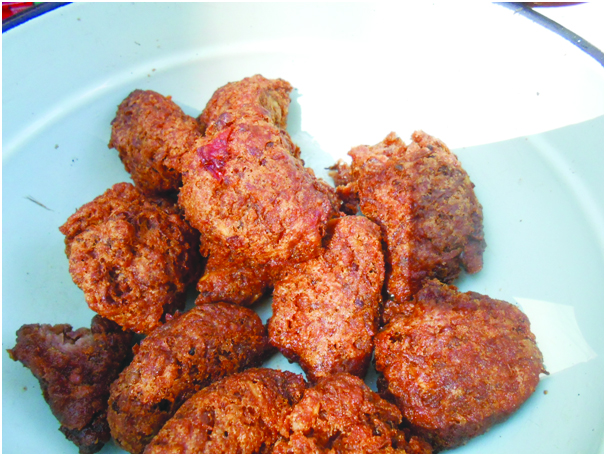


OUT and ABOUT
I have been lucky recently to enjoy two meals cooked by Mutoko-based Svinurai Arts Association, the best traditional food I have tasted in a long time. Founded in 2007 by Helen Agnes Zhinhu and Fungai Karimazondo, this group celebrates culture through delicious traditional recipes, spreading a message of health and hope through drama and good cooking.
I have noticed a resurgence in traditional food outlets in the capital though most of those are heavily meat based. Svinurai offers a huge range of vegetarian relishes and a visiting Zulu vegetarian was delighted at the choice and found it the best food he’d eaten on his trip.
Buying different grains like sorghum and millet at Mbare Market is more expensive than maize, as are road runners compared to factory chickens, but after counting the cost to health and the environment of processed foods and GMOs, natural seems the only sensible choice. Homegrown cuts down on the price.
Svinurai produced an amazing spread for over 100 people including several different types of sadza — sorghum, millet, cow peas, maize and local brown rice with peanut butter — and numerous relishes including goat stew, road runners tripe, okra, nhopi (pumpkin cooked with peanut butter) mushrooms, boiled pumpkin, beans, sweet potatoes, fried caterpillars, and different leaves — some with peanut butter, some cooked with tomato and onion. Highlights were cowpea fritters, rupiza (cow peas with peanut butter) and mabumbe — a dense patty made from ground pumpkin seeds which had many guests wondering what kind of meatballs these were!
The group started as HIV and Aids support, encouraging the eating of healthier food and a diet rich in fruit, fibre and vegetables. Accepted wisdom is that HIV positive people should avoid processed foods with added fats and sugars and keep healthy on a diet of natural foods. Agnes herself is testimony to this practice, radiating good health and boundless energy. She told me she has never felt stronger.
Svinurai are active in farming and growing crops as well as cooking, and also produce dramas highlighting different social issues, encourage self-reliance projects especially for widows and inform communities about health issues like HIV and Aids and TB. They also visit schools and work on empowering children so as to prevent child abuse and to encourage them to know and appreciate their culture.
The group arrived in Harare early evening, in a hired kombi loaded with pots, pans and home grown produce and started cooking immediately to get ready for lunch the next day.
Mabumbe sounds labour intensive but Agnes dismissed this with a smile as she explained that first the pumpkin seeds are dried, then roasted a little over a hot fire. Then they need to be pounded — and of course down home in Mutoko this is all done by hand — into a fine meal and sieved into flour. The pumpkin flour is mixed into hot water and kneaded to get rid of excess oil (which can be kept for cooking). Finally shape into round cakes and cook in boiling water — then finish with onion and tomato cooked into a flavoursome soup. I am definitely going to try them out — but will have to resort to an electric grinder to get the flour in the first place! Packed with nutrition — iron, protein and B vitamins as well as vitamin E — this is clearly a super food.
I also loved the cowpea fritters — made from cow peas soaked and cooked till soft, then mashed and mixed with eggs, onion and salt before being deep fried. Very moreish!
Lovely to enjoy such a tasty and nutritious variety of homegrown grains and relishes.
g.jeke@yahoo.com